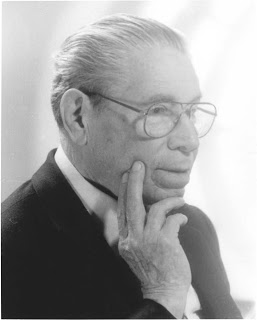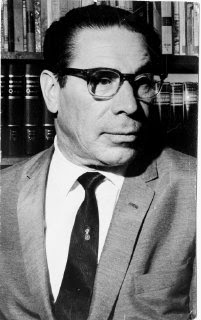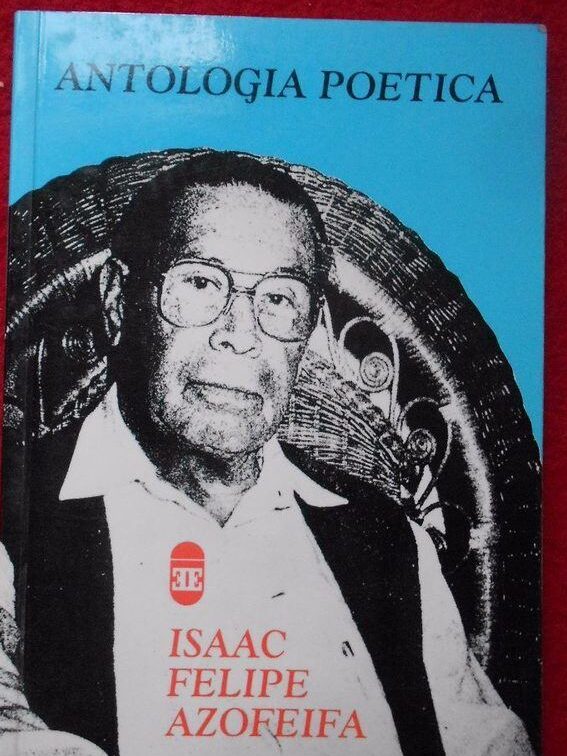Isaac Felipe Azofeifa Bolaños stands as one of the most prominent figures in Costa Rican literature and education in the 20th century. Born on April 11, 1909, in Santo Domingo, Heredia, and passing away on April 3, 1997, in San José, his life and work left an indelible mark on Costa Rica’s cultural landscape (Wikipedia, the free encyclopedia).
Azofeifa was a poet, educator, and politician whose work transcended the boundaries of these disciplines, blending them into a life practice that sought not only beauty through words but also social transformation through education and political engagement. As a poet, he is remembered for his ability to sing about love, eroticism, and his concern for the pain and tribulations of the world, which cemented him as one of Costa Rica’s most important poetic voices of the 20th century (Wikipedia, the free encyclopedia).
His commitment to education led him to play significant roles in renowned educational institutions such as the Liceo de Costa Rica and the University of Costa Rica, where he promoted pedagogical innovations and contributed to the training of future generations. Furthermore, his political activism was marked by the founding of parties and participation in social and democratic reform movements, reflecting his deep conviction in the power of change through civic engagement (Wikipedia, the free encyclopedia) (Dirección de Cultura) (La Revista).
Isaac Felipe Azofeifa was not only a witness to his time but also a crucial actor in shaping Costa Rica’s cultural and social fabric, leaving a legacy that still resonates in the country’s poetry, education, and politics. His life stands as a testament to unwavering commitment to the ideals of justice, beauty, and education—pillars that continue to inspire those who seek in art and culture tools for social transformation.

1. Biography
Childhood and Education
Isaac Felipe Azofeifa was born in a rural environment in Santo Domingo, Heredia, on April 11, 1909, a region of Costa Rica known for its natural beauty and deep-rooted peasant traditions. This setting played a crucial role in the development of his literary and social sensitivity, nurturing from an early age a close connection with the cultural roots and nature of his country. His childhood, marked by his peasant heritage, forged in him a keen awareness of Costa Rica’s social and cultural reality, aspects that would later significantly influence his work (Wikipedia, the free encyclopedia).
Literary and Educational Career
From a young age, Azofeifa showed a profound interest in literature, which led him to participate in literary contests and engage with both national and international cultural circles. After studying at the Pedagogical Institute of the University of Chile, where he connected with prominent avant-garde poets such as Pablo Neruda, he returned to Costa Rica in 1935 to dedicate his life to literature, education, and politics (Wikipedia, the free encyclopedia) (Dirección de Cultura).
His first major publication, Trunca Unidad, was released in 1958, marking the beginning of a prolific literary career that included notable works such as Vigilia en pie de muerte (1962), Canción (1964), and Estaciones (1967), among others. These works reflect not only his poetic mastery but also his commitment to exploring the depths of the human soul, love, social justice, and Costa Rican identity (Wikipedia, the free encyclopedia) (Dirección de Cultura).
In the educational field, Azofeifa stood out for his innovative approach to teaching literature at the University of Costa Rica. His role as an educator went beyond the mere transmission of knowledge; he became a formative influence on generations of students, inspiring them to question, reflect, and actively participate in building a more just society. Through his work at the university and his involvement in educational reforms, Azofeifa contributed to modernizing academic and pedagogical thought in Costa Rica, promoting a student-centered education model, social criticism, and civic engagement (Wikipedia, the free encyclopedia) (La Revista).
Isaac Felipe Azofeifa’s life reflects the interweaving of poetry, education, and social commitment—pillars that defined his contribution to Costa Rica’s cultural and political landscape. His legacy endures, reminding us of the importance of literature and education as tools for social transformation.
Isaac Felipe Azofeifa’s political activism played a fundamental role in his life and work, marking his contribution to Costa Rica’s social and political development. As a committed intellectual, Azofeifa did not confine himself to the literary and educational spheres; he actively ventured into politics, seeking to influence social and national changes in his country.
Azofeifa was one of the founding members of social democracy in Costa Rica, a political movement that sought to balance social justice with liberal democracy at a time when the country was beginning to define its modern political identity. His involvement in the National Liberation Party (PLN) was notable, holding key positions that allowed him to influence the party’s development and direction (Wikipedia, the free encyclopedia).
However, his political vision evolved towards the pursuit of a third path in Costa Rican politics, which eventually led him to found the Partido del Progreso. This decision reflects his desire to offer a political alternative beyond the traditional bipartisan system, promoting a more inclusive approach focused on the country’s social needs. Later, deepening his commitment to social and political causes, Azofeifa was instrumental in founding Fuerza Democrática, a center-left political party that aimed to establish itself as a new political force contributing to democratization and social progress in Costa Rica (Wikipedia, the free encyclopedia) (Dirección de Cultura).
Through his political activism, Azofeifa demonstrated an unwavering commitment to major human and national transformations. His involvement in politics not only highlights his desire to contribute to Costa Rica’s social and political well-being but also underscores his belief in civic participation as a vehicle for change (La Revista).
Isaac Felipe Azofeifa not only left behind a literary and educational legacy but is also remembered as a visionary politician who tirelessly sought the improvement of Costa Rican society. His life and work reflect the deep conviction that literature, education, and politics are essential tools for a nation’s transformation and progress.

2. Literary Work
The literary work of Isaac Felipe Azofeifa is rich and diverse, covering a wide range of themes that reflect his profound sensitivity toward the human condition and his commitment to social change. His literature, which includes poetry and essays, stands out for its particular focus on themes such as love, eroticism, human tribulations, and social awareness.
Azofeifa achieved a remarkable synthesis between modernism, avant-garde movements, and postmodern trends, creating a unique poetic voice that strongly resonates within the Costa Rican literary context. His ability to intertwine aesthetics with social critique allows his works to transcend time, establishing him as one of Costa Rica’s most important poets of the 20th century.
Some of his most representative works include:
- Trunca Unidad (1958): His first book of poems, where his tendency to explore the complexity of human existence and the search for unity amid the fragmentation of being is already evident.
- Vigilia en pie de muerte (1962) and Canción (1964): In these works, Azofeifa delves into the exploration of love and eroticism, demonstrating a unique sensitivity toward human emotions and experiences.
- Estaciones (1967) and Días y territorios (1969): These poetry collections reflect his contemplative gaze on the natural and social world, revealing a keen awareness of the political and social realities of his time.
Beyond poetry, Azofeifa also ventured into essay writing, contributing to critical thought on Costa Rican literature and culture. His work as an essayist was pioneering in national literary studies, seeking to define the characteristics that shape Costa Rican identity.
Azofeifa not only sang of love and eroticism but also dedicated his pen to the suffering of others and the world’s tribulations, becoming a critical voice of his time. Through his work, he fostered a profound reflection on society, politics, and culture, positioning himself as a poet committed to human and national transformations (Wikipedia, the free encyclopedia) (Dirección de Cultura).
The reception of his work has been marked by recognition of his contribution to Costa Rican literature, as evidenced by the multiple awards and distinctions he received throughout his career, including the Premio Nacional de Cultura Magón in 1972, which underscores his place as one of the most influential literary figures in Costa Rica (Dirección de Cultura). His legacy endures, inspiring new generations of writers and readers to explore the richness and complexity of human experience through words.

3. Contributions to Education
Isaac Felipe Azofeifa is recognized not only for his contribution to Costa Rican literature but also for his significant impact on education in Costa Rica. His work as an educator was distinguished by a humanistic and inclusive approach, committed to integrating global issues into education and shaping conscious, critical, and engaged citizens.
University Reform
One of Azofeifa’s most significant contributions was his active participation in university reform during the 1950s and 1960s. As an educator and innovative thinker, he advocated for a thorough review of curricula and teaching methods at the University of Costa Rica. His vision was of an education that, beyond providing technical or specialized knowledge, would also train students in critical thinking and prepare them to face global challenges with an informed and engaged perspective (La Revista).
Commitment to Humanism
Azofeifa firmly believed in the values of humanism as the foundation of education. He argued that learning should extend beyond the classroom and connect with the social, political, and cultural realities of the world. This approach aimed to develop not only students’ intellectual abilities but also their ethical values and sense of social responsibility. Through his efforts, he promoted the inclusion of general studies at the university, ensuring that all students, regardless of their specialization, received a well-rounded education that included the arts, humanities, and social sciences (La Revista).
Influence on Future Generations
Azofeifa’s legacy as an educator extends beyond his time at the University of Costa Rica. Through his involvement in creating spaces for debate and reflection, such as Revista Surco, and his constant support for the student movement, he influenced generations of young people to adopt a critical and active stance toward the issues of their time. His advocacy for university autonomy, academic freedom, and the social responsibility of higher education has left an indelible mark on Costa Rica’s educational system (La Revista).
Isaac Felipe Azofeifa was not just an educator—he was also a reformer who understood education as a means of social change and human development. His pedagogical approach, which combined global issues with deep humanism, continues to inspire educators and students seeking in education a path toward personal and social transformation.

4. Legacy and Recognition
Isaac Felipe Azofeifa’s legacy in later generations is undeniable, especially in the fields of literature, education, and politics in Costa Rica. His work and thought have left a profound impact, inspiring poets, educators, students, and politicians to embrace a critical and engaged vision of society.
Impact of His Work and Ideas
Azofeifa is remembered as one of Costa Rica’s most important 20th-century poets, not only for his contribution to poetry but also for his innovative pedagogical approach and political activism. His literary work, marked by explorations of love, eroticism, and the human condition, along with his deep concern for social issues, has influenced numerous Costa Rican writers. As an educator, Azofeifa spearheaded university reforms that transformed the approach to higher education in the country, promoting a more humanistic and integrative model.
Awards and Honors
Recognition of his career and contributions to Costa Rican culture has come in the form of various awards and honors over the years:
- Premio Nacional de Cultura Magón (1972): The highest cultural award in Costa Rica, given to individuals whose life and work have significantly contributed to national culture. Azofeifa was honored with this award, highlighting his role as a central figure in Costa Rican literature and thought (Dirección de Cultura).
- National Poetry Awards: Throughout his career, Azofeifa received several National Poetry Awards for works such as Vigilia en pie de muerte, Canción, Estaciones, and Días y territorios. These awards recognize his poetic mastery and his ability to capture the essence of human experience and the beauty of the natural world (Dirección de Cultura).
- International Recognition: Beyond Costa Rica, Azofeifa was also honored abroad, reflecting his impact beyond national borders. His contributions to culture and literature were recognized in countries such as El Salvador and Chile, where his work and ideas resonated with international audiences (Dirección de Cultura) (La Revista).
Isaac Felipe Azofeifa has left a lasting legacy that continues to inspire new generations in Costa Rica and beyond. His dedication to literature, education, and the fight for a more just and equitable society stands as a testament to his life and work, reminding us of the power of intellectual and cultural commitment to transform our reality.

5. Criticism and Controversy
The life and work of Isaac Felipe Azofeifa, while widely celebrated for their contributions to Costa Rican culture, literature, and education, were not without criticism and controversy—particularly regarding his political activism and his influence on educational and political reform movements in the country.
Political Activism
Azofeifa’s political commitment to social democracy and his active role in founding and developing the Partido Liberación Nacional significantly shaped his career. However, his later disillusionment with the party and his subsequent founding of Partido del Progreso and Fuerza Democrática reflected his ongoing search for a political platform that aligned with his ideals of social justice and democracy. This transition, however, sparked debate and criticism, particularly from those who saw these actions as causing divisions within the political left or as unsuccessful attempts to reshape Costa Rica’s political landscape (Wikipedia, La Revista).
Educational Reform
In the field of education, his involvement in university reforms and his advocacy for a humanistic education that integrated global issues also faced resistance. While many admired his vision of transforming the educational system to be more inclusive, critical, and relevant to contemporary challenges, others viewed these reforms as threats to academic traditions or as attempts to politicize education. The tension between educational innovation and the preservation of traditional methods became a contentious issue, with Azofeifa playing a central role in the debate (La Revista).
Azofeifa was also a polarizing figure in the context of student and academic struggles for democracy and against dictatorships in Central America. His support for these movements placed him at the center of political controversies, especially during a period of intense repression and political polarization in the region. His solidarity with Chile and opposition to the Pinochet dictatorship exemplify how his activism extended beyond national borders, earning both admiration and criticism (La Revista).
In summary, Isaac Felipe Azofeifa’s life was marked by his relentless pursuit of social justice, literary beauty, and humanistic education. While his political activism and influence on educational reform sparked controversies, his legacy as a poet, educator, and engaged intellectual remains a testament to his profound impact on Costa Rican society.


















